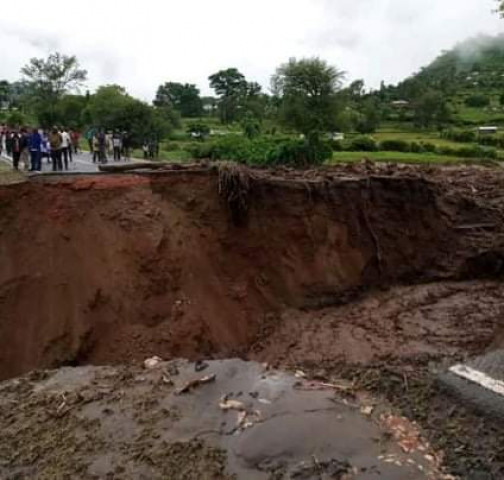Kenya landslides kill 29 people
Homes hit in the early hours amid torrential rains

PHOTO COURTESY: @josagana/TWITTER
·
Their homes were hit in the early hours of Saturday amid torrential rains in the Pokot region, 350 kilometres northwest of the capital Nairobi.
"We are saddened to confirm that 12 people from Tapach and Parua in Pokot South, and 17 from Tamkal in Pokot Central lost their lives," Interior Minister Fred Matiang'i said in a statement.
"Our profound sympathies go to the families and friends of those who have been affected."
https://twitter.com/FredMatiangi/status/1198246497919422464
Army and police helicopters have been sent, Matiang'i said, with rescue efforts delayed because roads have been cut and bridges closed after streams turned into raging torrents.
"Massive landslides reported in various areas of West Pokot County following heavy downpour," Kenya Red Cross said in a message, adding its emergency response teams had deployed to help.
Massive landslides reported in various areas of West Pokot County following heavy downpour. Response teams activated. Details to follow.
— Kenya Red Cross (@KenyaRedCross) November 23, 2019
West Pokot County Commissioner Apollo Okello said that two children were pulled out alive from the smashed wreckage of their mud-covered homes.
"They have been rushed to hospital," he said.
Rescue efforts to dig bodies out of the dirt continued.
"The challenge we are facing is the heavy rains, but we are trying our best," he added.
It is not only Kenya that is affected. The landslides come amid weeks of destructive rains and flooding across East Africa.
Violent downpours have displaced tens of thousands in Somalia, submerged whole towns in South Sudan and killed dozens in flash floods and landslides in Ethiopia and Tanzania too.
Close to a million people in South Sudan alone are affected with growing fears of disease and starvation.
Floods hit East Africa regularly, but scientists say that it has been exacerbated by a powerful climate phenomenon in the Indian Ocean stronger than any seen in years.
The extreme weather is blamed on the Indian Ocean Dipole -- a climate system defined by the difference in sea surface temperature between western and eastern areas of the ocean.
The ocean off East Africa is currently far warmer than usual, resulting in higher evaporation resulting in rain over the continent.


















COMMENTS
Comments are moderated and generally will be posted if they are on-topic and not abusive.
For more information, please see our Comments FAQ